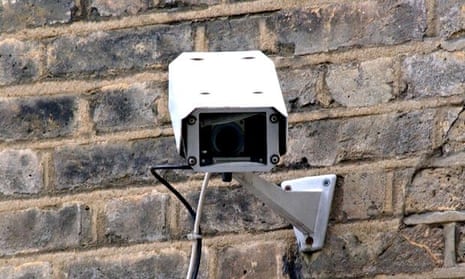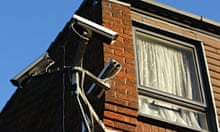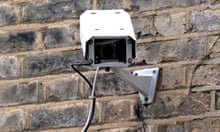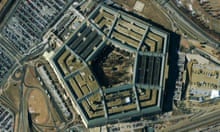Images captured on a household surveillance camera could breach data-protection rules if the person filmed was on a public footpath when videoed, the European court of justice (ECJ) has ruled.
By clarifying European legislation, the judgment could have significant consequences for householders in the UK who use CCTV and keep or try to use the images, according to a legal expert.
The case related to a Czech man, František Ryneš, who installed a surveillance camera after he and his family were subjected to attacks by unknown individuals. The camera filmed areas including a public footpath and the entrance to the house opposite.
After someone fired a catapult at his home, breaking a window, Ryneš gave the recordings to the police, allowing them to identify two suspects, who were subsequently prosecuted.
However, one of the suspects challenged the legality of Ryneš recording and holding the images. The Czech office for the protection of personal data, found that although Ryneš had been trying to expose the perpetrators of a crime, he had infringed data-protection rules and issued him with a fine.
Ryneš appealed against the ruling and the supreme administrative court in the Czech Republic referred the case to the ECJ, asking whether European data-protection directive rules on the processing of personal data applied.
The court decided Ryneš was not liable for a fine because he had acted to help prosecute a criminal. However, the judgment suggested that if a crime had not been committed he would have breached European data regulations. The directive has an exception in the case of data processing carried out “by a natural person in the course of a purely personal or household activity”, but the court found that the exception would not always apply if a camera is recording images of a public space such as a footpath.
The judges said: “The operation of a camera system, as a result of which a video recording of people is stored on a continuous recording device such as a hard disk drive, installed by an individual on his family home for the purposes of protecting the property, health and life of the homeowners, but which also monitors a public space, does not amount to the processing of data in the course of a purely personal or household activity, for the purposes of that provision.”
This contradicts the application of the directive in the UK. Kathryn Wynn, senior associate at Pinsent Masons, said the UK Information Commissioner’s Office (ICO) had always taken the view that a camera on someone’s house was outside of the law.
Householders who have surveillance cameras that capture public space would have to put up a notice informing people they are being filmed and make sure footage was not unduly retained, she said.
“The overarching concern is if you have two neighbours in dispute and one installs CCTV to capture their neighbour doing whatever they are complaining about, the other will run off to the ICO and complain about use of the film,” she said. “The ICO will start to get pulled into domestic property disputes.” However, she emphasised that the ruling made it clear that footage of criminal activity could still be used.
An ICO spokesman said: “We are just considering the ruling and what implications might have.”







